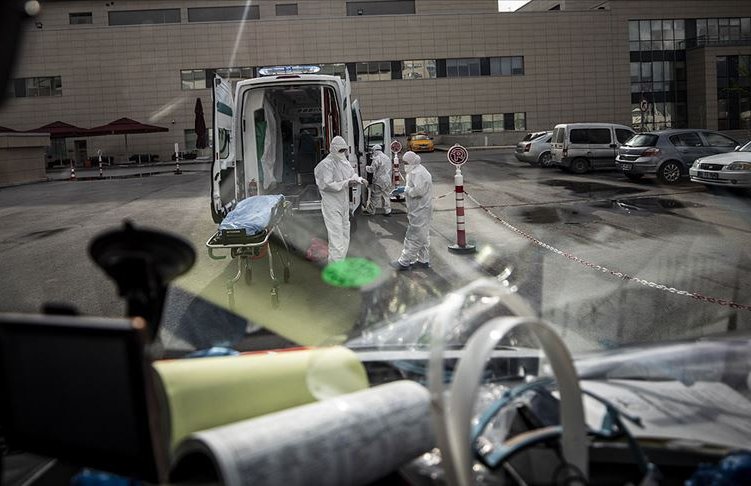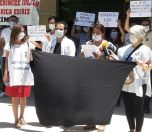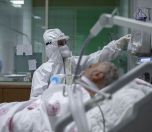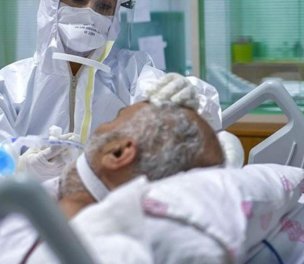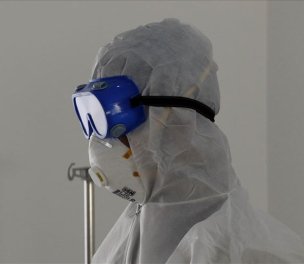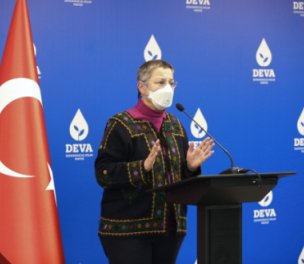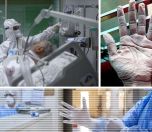Photo: AA
Click to read the article in Turkish / Kurdish
The Healthcare and Social Service Laborers' Union's (SES) Ankara Branch has released a report on the situation of the coronavirus epidemic and the working conditions of health workers in Turkey's capital.
According to the SES, the number of daily cases in Ankara is about 2,000, which is significantly higher than the Ministry of Health figures for the entire country.
The average number of daily cases in the country was about 1,500 over the past week, according to the ministry figures. The ministry doesn't disclose figures by province.
The SES says about 20 people die of Covid-19 in a day in Ankara whereas the average number of daily deaths in the past week in the entire country is 33, according to the ministry figures.
Professional organizations and unions of health workers have long been disputing the official figures and criticizing the government of not being transparent.
CLICK - Covid-19 in Diyarbakır: '15 people died in a single hospital in one day'
CLICK - Turkish Medical Association: There are 10 times more Covid patients than what ministry says
There are nearly 3,700 hospitalized Covid-19 patients throughout the province and only two public hospitals without a Covid-19 patient, the report noted.
Among the hospitalized patients, about 650 are in intensive care, according to the union. The ministry stopped announcing the number of intensive care patients late July, following a sharp increase. There were 961 "severely ill" Covid-19 patients throughout the country as of yesterday (August 31), according to the official figures.
While there is a bed shortage at public hospitals, about 3,200 beds in private hospitals are not used for Covid-19 treatment, notes the union statement.
Shortage of medicine
"Patients are waiting for empty beds at emergency services to be admitted and waiting for medical treatment at their homes," the SES statement notes, saying that there is a shortage of favipiravir and hydroxychloroquine in the capital.
"The most important reasons for the increase in the number of cases, the number of severely ill patients and death rates are not taking nationwide radical measures, the approach that reduces the protection from the virus to the measures taken by the people and the creating complacent in the public with the normalization report," says the statement, referring to the government's wide reopening steps in early June.
The situation of health workers
Saying that the lack of measures and increasing Covid-19 cases led nearly 500 health workers to resign, retire or take unpaid leave, the SES listed the problems of health workers:
- Health workers who have chronic diseases and cancer treatment were forced to work.
- Pregnant health workers were forced to work in the riskiest areas.
- Couples who are both health workers and health workers who have family members in risk groups were not provided with convenience.
- Health workers were not included in rotational working circulars.
- Regular PCR tests were not conducted on health workers.
- Adequate personal protective equipment was not provided.
- Covid-19 was not recognized as an occupational disease and workplace accident.
- Health workers' economic losses were not covered.
- Despite the increasing workload, a sufficient number of health workers were not employed. (TP/VK)




